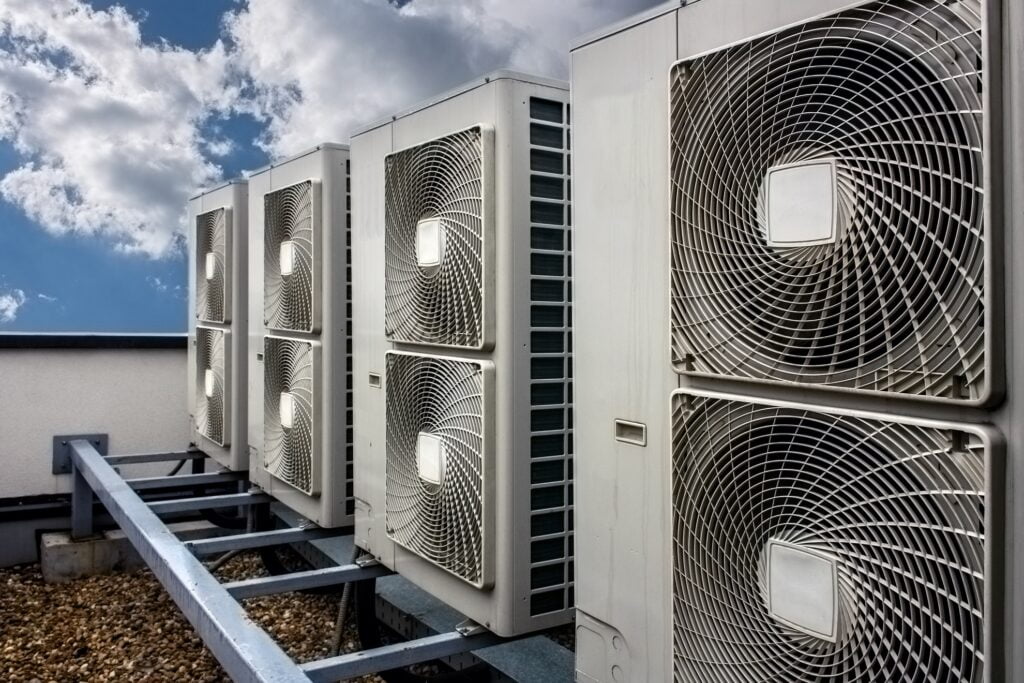Maintaining a comfortable indoor temperature is crucial, especially during the sweltering summer months. However, when your air conditioning (AC) unit has issues, it doesn’t just affect your comfort; it also impacts your energy costs. Here, we explore common AC issues, including low refrigerant levels, frozen evaporator coils, and thermostat issues, providing practical solutions and guiding you through troubleshooting.
Low Refrigerant
Scenario
You might notice that your air conditioning unit is running constantly. Yet, it struggles to effectively cool your home, leaving you feeling uncomfortable and possibly concerned about the efficiency of your cooling system.
Solution
The issue often lies with low refrigerant levels, typically due to leaks. Since refrigerant operates in a closed loop, its level should not decrease under normal conditions. Therefore:
- Consult a Professional: A certified AC technician can use specialized equipment to check for leaks, repair any leaks found, and then recharge the system with the correct amount of refrigerant.
- Preventive Measures: It is advisable to engage in regular maintenance routines to proactively check for any signs of leaks and promptly address them at the earliest stages. By taking these preventive steps, you can effectively avoid the re-occurrence of this issue in the future.
Frozen Evaporator Coil
Scenario
Your Air Conditioning unit blows warm air; upon inspection, you find ice on the evaporator coil.
Solution
This issue often arises from reduced airflow caused by dirty air filters or a lack of regular maintenance, leading to the coil freezing over. It is crucial to ensure that air filters are clean and that regular maintenance checks are carried out to prevent this common problem. If the coil does freeze over, it is recommended to defrost it by turning off the system and allowing the ice to melt naturally before restarting the unit.
- Check and Replace Air Filters: Dirty filters block airflow. Inspect and change them regularly.
- Clean the Evaporator Coil: Ensure it’s free from dirt and debris. If you’re comfortable, you can clean it yourself; otherwise, consider hiring a professional.
- Ensure Proper Airflow: There’s nothing obstructing air access around the unit.
- To defrost the Coil, Turn off the AC, set the thermostat to a higher temperature, and wait for the ice to melt.
Thermostat Issues
Scenario
The air conditioning system may not activate when you try to turn it on, or it might not react as expected when you adjust the temperature settings. If you encounter any issues with your AC unit, such as a lack of response or incorrect temperature adjustments, it could be a sign of underlying problems that require attention.
Solution
Often, the problem is simpler than it seems and can be tied back to the thermostat.
- Correct Settings: Ensure the thermostat is switched to “cool” mode and the temperature is set lower than the room’s current temperature.
- Battery Replacement: If your thermostat is battery-operated, low batteries might prevent it from functioning correctly.
- Upgrade: Consider upgrading to a programmable or smart thermostat for improved control, energy efficiency, and troubleshooting capabilities.
When to Call a Professional
While many issues can be resolved with basic troubleshooting:
- If your AC system needs refrigerant, professional help is required due to the need to handle refrigerants safely and legally.
- Certified technicians should address electrical component repairs to ensure safety and proper functioning.
By understanding common AC issues and how to address them, you can ensure your cooling system remains effective and efficient. However, regular maintenance by professionals can prevent many of these problems from arising in the first place, saving you time and hassle. Contact a trained HVAC professional to inspect and maintain your AC system regularly. Additionally, suppose the issue appears to be related to the thermostat. In that case, having an experienced technician assess and repair it for optimal performance is best. They can also provide recommendations for upgrading or replacing your thermostat if necessary.

